Reducing marine plastic debris: the impact of Innoceana
Plastic pollution is a global problem that is extensively reported for the marine environment. The plastic pollution in the ocean is referred to as marine plastic debris (MPD). Land-based sources are responsible for 75%-80% of the MPD, and include for instance public littering and poor waste management practices. MPD can be categorized based on its size: nano, micro, meso, macro and mega. Dependent on the size of the plastic, as well as the chemical composition, it causes threats to the marine environment. Especially the mega and macro plastics form a threat of entanglement of marine organisms. When plastic is smaller – relative to the animal – they can ingest it. Other impacts include an increase in the overall toxicity of the ocean, the introduction of alien species, the exacerbation of climate change, and consequently lead to socio-economic impacts. Finally, MPD can be transported back to land and affect the terrestrial ecosystems.

Innoceana uses citizen science to bring the public and science closer together and to encourage citizens to engage in pro-environmental behaviour that minimizes the negative impact of one’s actions on the natural world. An impact assessment was used to study how Innoceana contributes to participants’ pro-environmental behaviour regarding marine plastic debris.
Methods
A literature review is used for studying how environmental knowledge influences pro- environmental behaviour, and for studying the sources, sizes and impacts of MPD in general. The Innoceana database that includes data on the collected types of debris during beach clean-ups was used to study the local context of MPD in and around Ojochal. Finally, questionnaires were used to research perceptions of participants in Innoceana’s activities and their pro-environmental behaviour.
Results of beach clean-up database
In general, there are no monitoring programs for plastic pollution, which leads to a lack of information about the pollution, both the extent and the contribution of different types of plastics and products. The effect of the plastic ban that Costa Rica implemented in 2021 has furthermore not been assessed. Innoceana contributes to filling this gap by monitoring the plastic debris collected during the beach clean-ups organized twice a month in and around Ojochal. Total numbers of beach clean-up data show that:
- Plastic fragments, plastic bags and wrappers, plastic lids, straws, hard plastics objects and fishing lines are collected more frequently than average compared to other categories of debris;
- The collection frequency of each of the categories of debris is different for the three beaches where Innoceana most often organizes;
- During beach clean-ups in the rainy season, the average amount of debris collected by individuals is higher than during the high season; this may point that plastic in the mountains and urban areas is washed out by rivers and brought into the coast

MCEC Innoceana’s impact
MCEC Innoceana organizes various activities to encourage participants to engage in pro-environmental behaviour. Questionnaires were filled out by participants from the Junior Blue Warrior Club, marine conservation expedition and beach clean-ups. These included questions concerning knowledge about MPD, about their pro-environmental behaviour and how INNOCEANA has influenced this. Conclusions that can be drawn from this data are:
- All respondents show to be aware of the impacts of MPD, 60% is aware of nano- and microplastics being most impactful to the marine environment, and 89% is aware of land-based sources to be the largest contributor to MPD;
- Single-use plastics are referred to by more than half of the respondents as source, whilst literature does not explain single-use plastics as separate source.
Concerning pro-environmental behaviour, respondents show that:
- All respondent were engaged in pro-environmental behaviour before they participated in one of the activities organized by Innoceana;
- Two participants experienced barriers for behaving pro-environmentally. After their participation in an activity organized by Innoceana, they no longer experience this barrier
This assessment shows that MCEC Innoceana encourages people to engage in behaviour that minimizes their impact on the environment. The marine conservation NGO is excited to inspire more people to enhance their pro-environmental. Are you interested how you can make a difference? Stay updated on beach clean-up activities in the Uvita and Ojochal areas on social media handles: Instagram.
